第21章 CHAPTER I.(6)
The Comte du Barry, surnamed 'le roue' (the profligate), and Mademoiselle du Barry advised, or rather prompted, Madame du Barry in furtherance of the plans of the party of the Marechal de Richelieu and the Duc d'Aiguillon. Sometimes they even set her to act in such a way as to have a useful influence upon great political measures. Under pretence that the page who accompanied Charles I. in his flight was a Du Barry or Barrymore, they persuaded the Comtesse du Barry to buy in London that fine portrait which we now have in the Museum. She had the picture placed in her drawing-room, and when she saw the King hesitating upon the violent measure of breaking up his Parliament, and forming that which was called the Maupeou Parliament, she desired him to look at the portrait of a king who had given way to his Parliament.
[The " Memoirs of General Dumouriez," vol. i., page 142, contain some curious particulars about Madame Du Barry; and novel details respecting her will be found at page 243 of "Curiosites Historiques," by J. A. Le Rol (Paris, Plon, 1864). His investigations lead to the result that her real name was Jean Becu, born, 19th August, 1743, at Vaucouleurs, the natural daughter of Anne Becu, otherwise known as "Quantiny." Her mother afterwards married Nicolas Rancon. Comte Jean du Barry met her among the demi- monde, and succeeded, about 1767, and by the help of his friend Label, the valet de chambre of Louis XV., in introducing her to the King under the name of Mademoiselle l'Ange. To be formally mistress, a husband had to be found. The Comte Jean du Barry, already married himself, found no difficulty in getting his brother, Comte Guillaume, a poor officer of the marine troops, to accept the post of husband. In the marriage-contract, signed on 23d July, 1768, she was described as the daughter of Anne Becu and of an imaginary first husband, Sieur Jean Jacques Gomard de Vaubernier," and three years were taken off her age. The marriage-contract was so drawn as to leave Madame du Barry entirely free from all control by her husband. The marriage was solemnised on 1st September, 1768, after which the nominal husband returned to Toulouse. Madame du Barry in later years provided for him; and in 1772, tired of his applications, she obtained an act of separation from him. He married later Jeanne Madeleine Lemoine, and died in 1811. Madame du Barry took care of her mother, who figured as Madame de Montrable.
In all, she received from the King, M. Le Roi calculates, about twelve and a half millions of livres. On the death of Louis XV. she had to retire first to the Abbey of Pont-aux-Dames, near Meaux, then she was allowed to go to her small house at St. Vrain, near Arpajon, and, finally, in 1775, to her chateau at Louveciennes.
Much to her credit be it said, she retained many of her friends, and was on the most intimate terms till his death with the Duc de Brissac (Louis Hercule Timoldon de Cosse-Brissac), who was killed at Versailles in the massacre of the prisoners in September, 1792, leaving at his death a large legacy to her. Even the Emperor Joseph visited her. In 1791 many of her jewels were stolen and taken to England. This caused her to make several visits to that country, where she gained her suit. But these visits, though she took every precaution to legalise them, ruined her. Betrayed by her servants, among them by Zamor, the negro page, she was brought before the Revolutionary tribunal, and was guillotined on 8th December, 1793, in a frenzy of terror, calling for mercy and for delay up to the moment when her head fell.
The men of ambition who were labouring to overthrow the Duc de Choiseul strengthened themselves by their concentration at the house of the favourite, and succeeded in their project. The bigots, who never forgave that minister the suppression of the Jesuits, and who had always been hostile to a treaty of alliance with Austria, influenced the minds of Mesdames. The Duc de La Vauguyon, the young Dauphin's governor, infected them with the same prejudices.
Such was the state of the public mind when the young Archduchess Marie Antoinette arrived at the Court of Versailles, just at the moment when the party which brought her there was about to be overthrown.
Madame Adelaide openly avowed her dislike to a princess of the House of Austria; and when M. Campan, my father-in-law, went to receive his orders, at the moment of setting off with the household of the Dauphiness, to go and receive the Archduchess upon the frontiers, she said she disapproved of the marriage of her nephew with an archduchess; and that, if she had the direction of the matter, she would not send for an Austrian.